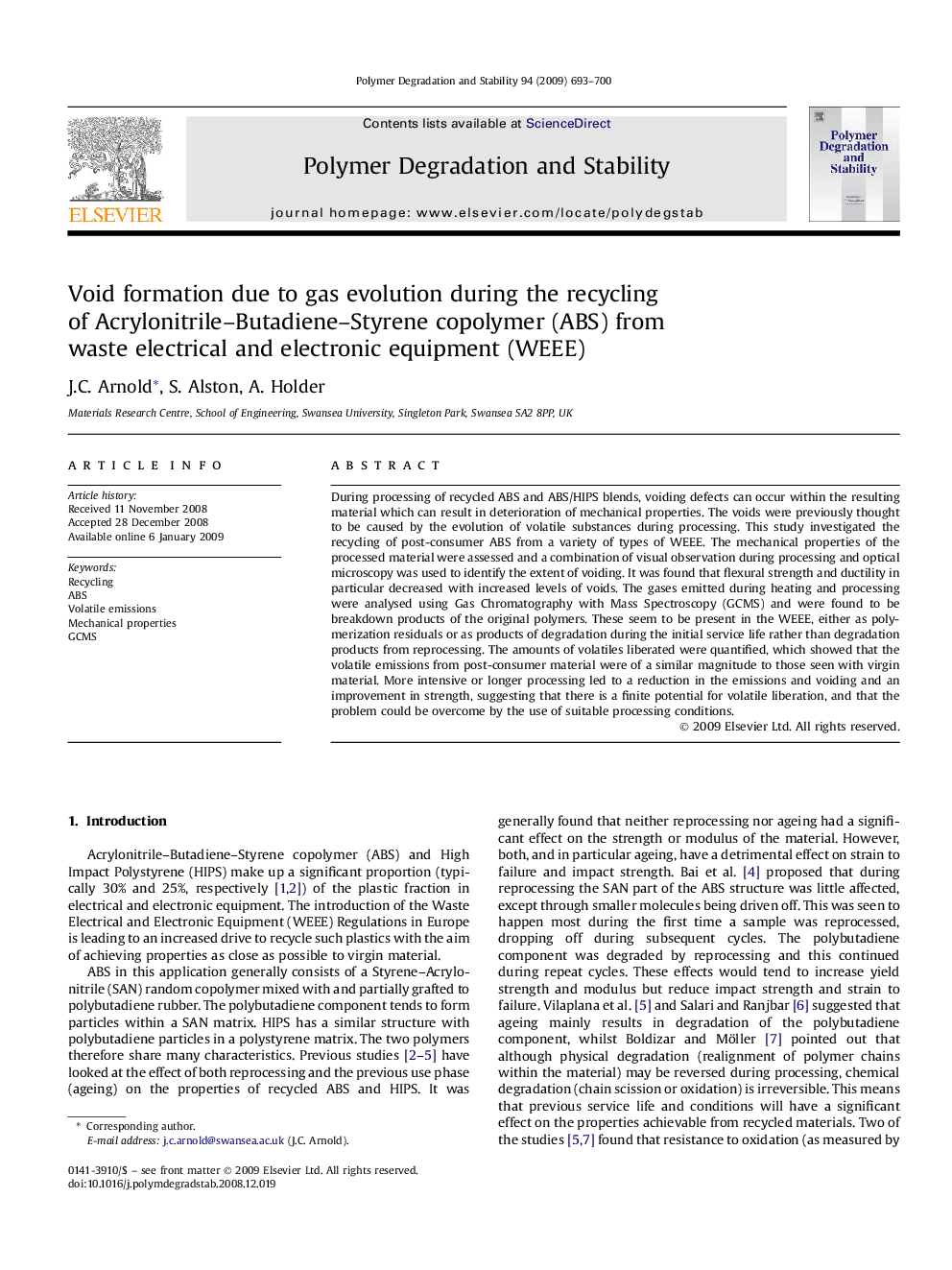| Article ID | Journal | Published Year | Pages | File Type |
|---|---|---|---|---|
| 5203526 | Polymer Degradation and Stability | 2009 | 8 Pages |
Abstract
During processing of recycled ABS and ABS/HIPS blends, voiding defects can occur within the resulting material which can result in deterioration of mechanical properties. The voids were previously thought to be caused by the evolution of volatile substances during processing. This study investigated the recycling of post-consumer ABS from a variety of types of WEEE. The mechanical properties of the processed material were assessed and a combination of visual observation during processing and optical microscopy was used to identify the extent of voiding. It was found that flexural strength and ductility in particular decreased with increased levels of voids. The gases emitted during heating and processing were analysed using Gas Chromatography with Mass Spectroscopy (GCMS) and were found to be breakdown products of the original polymers. These seem to be present in the WEEE, either as polymerization residuals or as products of degradation during the initial service life rather than degradation products from reprocessing. The amounts of volatiles liberated were quantified, which showed that the volatile emissions from post-consumer material were of a similar magnitude to those seen with virgin material. More intensive or longer processing led to a reduction in the emissions and voiding and an improvement in strength, suggesting that there is a finite potential for volatile liberation, and that the problem could be overcome by the use of suitable processing conditions.
Related Topics
Physical Sciences and Engineering
Chemistry
Organic Chemistry
Authors
J.C. Arnold, S. Alston, A. Holder,
